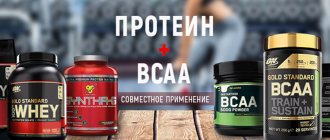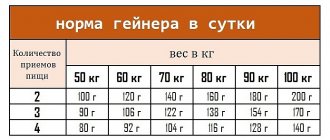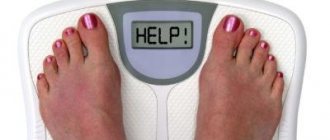What is protein made from and what is it needed for? At what age can you take it without fear for your health? At the present stage, young people are developing in the right direction, and more and more young people are giving preference to health and sports. No wonder. A beautiful body, a healthy mind, attention from the opposite sex, an active rhythm of life, regular sex - all this brings more satisfaction than alcohol, cigarettes or, even worse, drugs.
But against the backdrop of interest in sports, many questions arise related to the relevance of taking sports nutrition. It is not always clear whether teenagers can take protein, at what age can they drink sports nutrition, how harmful proteins are for a growing body, and so on. As a result, there are more questions than answers. Let's put everything on the “shelves”.
What is protein?
Despite the abundance of information, many people mistakenly associate protein with steroids.
In fact. These are different things. In the first case, we are talking about natural sports nutrition made from ordinary food products, for example, milk, whey, eggs, and so on. As for steroids, this is a synthetic product or, in simple words, “chemistry”. The only peculiarity of the protein is that it is a concentrated composition of the same protein that is found in dairy products. Thanks to special techniques, the most useful components are literally “mined”, dried and turned into powder. As a result, the result of one spoon of protein can be equal to, for example, a kilogram of cottage cheese eaten. At the same time, scientists assure that protein can be taken by absolutely everyone without exception.
In addition, drinking a ready-made supplement is much more convenient, because all that is required is to mix it with liquid (water, juice, milk, etc.). If you regularly consume protein, you can forget about the lack of protein in the body. So the benefits are undeniable. The only question is, is it necessary to help a young body? Is it worth using sports nutrition before the age of 16-18?
What is protein and why is it used?
Protein is pure protein. Every person needs it every day. The nutrition that a child under one year of age receives in the form of mother's milk is, in fact, a protein shake. But if we talk about teenagers who are seriously interested in sports, the situation here is somewhat different. Most often, boys who want to quickly build muscle begin to consume proteins. In this case, you must first determine the pros and cons of such an event and consult with your doctor. He will tell you at what age you can drink protein without harm to your health.
Parents should be reminded of the time when they first started feeding their child cottage cheese, meat, sour cream and eggs, which are sources of protein. And this usually happens at six months of age, up to a year. Later, the child is already familiar with all products containing proteins, and during adolescence, many already begin to receive sports nutrition.
So, at what age can you eat protein?
It is allowed to be taken at any age, but it is very important to observe the frequency of administration and dosage. All incoming protein in a child’s body is used for growth, and the child can get everything that is needed for this from simple foods. However, during active sports training, the body requires an increased amount of protein, so the use of protein-based sports supplements often becomes a real necessity.
Borders exist
Many guys don’t even think about the age at which they can drink protein. They just look at older guys and completely repeat their actions. Moreover, even the dosage of more advanced in sports and already adult guys is thoughtlessly duplicated. There are a lot of cases where boys of 13-14 years old actively “stuff” protein into themselves in the hope of seeing Schwarzenegger in the mirror. But is it necessary to make such “sacrifices”?
For most trainers, it is considered the norm to recommend sports nutrition to beginners, starting from 15-16 years old. In turn, manufacturers do not agree with this. As a rule, you can find the “18 years” restriction on protein packages. How do the coaches explain this? They claim that this figure is only reinsurance for the manufacturer in case of an emergency.
As for problems after taking them, they are possible only in the following cases:
- if you drink sports nutrition, regularly increasing the dosage;
- if you consume proteins on your own (and mix them with other additives) without the consent of a professional (it doesn’t matter how old you are).
Sports nutrition safety
Many people believe that sports supplements contain harmful chemicals. In fact, good quality sports nutrition is completely safe. Ordinary products from the refrigerator (sausage, mayonnaise, cream in cakes) contain even more harmful substances than sports supplements, but no one is in a hurry to get rid of them. So, the conclusion is clear: if the use of sports nutrition is necessary to achieve good sports results or due to an acute lack of protein in the body, then there are no special contraindications to its use.
At what age can you take protein according to scientists?
How does the teenage body work?
Of course, how much and in what volume the supplement was taken is of great importance, but the principle remains the same. Many believe that taking supplements at the age of 13-16 can significantly accelerate muscle growth. In fact, everything happens the other way around. As we mentioned, disruptions may occur in metabolic processes. The body needs to act, and it directs all its forces to overcome the problem. As a result, resources are spent not on mass gain, but on struggle. The result is a weakened state, lack of energy and results. In the future, no matter how much protein enters the body, there will be no use. The reverse process, which we mentioned above, is also possible.
What is important to consider when taking protein?
Many scientists, pediatricians and parents have long been concerned about the topic of proteins for children and adolescents, because many of them attend various sports sections and see that adults use sports nutritional shakes. Since trainers usually do not allow taking proteins to gain muscle mass without parental permission, they should definitely talk to them about this.
A large number of studies have been conducted, the main purpose of which was to determine at what age you can take protein. No harmful effects were found. However, pediatricians note some dangerous points:
- Adequate dosage for age. A lot of energy is spent on the absorption of protein in the body, and in this case the protein comes in ready-made form. However, its excess is fraught with negative consequences in the form of liver and kidney dysfunction. In view of this, it is necessary to determine in what dosage you need to consume protein to increase muscle mass: in accordance with the recommendations of a specialist, in the right dose.
- Adequate sports loads. A child may have a stereotype that if he takes a sports shake, then he can train like adults. In fact, excessive exercise in adolescence is contraindicated.
- Psychological danger. Having taken protein shakes and realized that they do not promote rapid muscle growth, as many young people would like, they can quickly switch their attention to steroid products, which should not be taken at a young age.
- There are age restrictions, which are small, but still there. Pediatricians do not recommend taking sports nutrition for children under 14 years of age. But if there is an acute protein deficiency that cannot be compensated for in any other way, an exception may be made for the child. In other cases, the child’s only need will be quality nutrition.
In any case, a sports shake cannot be considered a complete meal replacement. This is only a supplement that helps correct protein deficiency.
What's the result?
If protein intake is necessary to achieve sports results, then a specialist will help. He will tell you how much is better to take supplements, and at what age it is better to start.
Protein Supplements for Teens
At what age can a teenager take protein?
Today, some trainers of sports sections and gyms are promoting the use of sports supplements among teenagers 14-17 years old. And this is despite the fact that the packaging of such specialized food products indicates that supplements are only allowed to be consumed after 18 years of age.
So at what age can you officially take protein? It is widely believed that manufacturers provide such information in order not to be held responsible for the consequences for those who do not comply with dosages and commit other violations when using supplements.
What should professionals do?
How to build muscle without sports nutrition?
- Do not waste extra time on separately working the muscles of the biceps or, for example, triceps. No matter how much you load individual muscle groups, it will give minimal results. It is worth paying more attention to basic exercises, for example, deadlifts, squats, bench presses, and so on. Deadlifts are often not favored, but it is with its help that you can achieve the growth of smaller muscles - the same triceps or biceps.
Take a look at our proteins section - we have a good selection and you can choose the ideal protein for yourself.
Are casein formulas harmful for newborns?
Of course, they will not cause irreparable harm to the baby’s health, but we can definitely say that adapted milk formulas enriched with whey are much more physiological for children in the first year of life.
The very structure of the proteins in goat and cow milk also differs from the structural composition of human milk, while these differences are less pronounced in goat milk.
The main whey protein in goat milk is α-lactalbumin.
, and cow's -
β-lactoglobulin
. Differences in the composition and structure of goat and cow's milk proteins explain the fact that goat's milk is easier to digest due to the fact that it forms a softer curd (closer to that formed during the digestion of breast milk) and small flakes that are more easily processed by enzymes.
Thus, we can conclude that formulas based on goat’s milk are easier to digest than those based on cow’s milk, and are less likely to lead to digestive disorders.
It is impossible to single out which protein is more beneficial for a child - both whey and casein proteins should be present in infant formula. The main thing is that their ratio is as close as possible to human milk.
To understand the composition and determine the ratio of whey and casein protein in infant formula, just read what is written under the line “proteins”. The manufacturer always indicates the amount of whey protein and casein per 100 g of dry product and/or per 100 ml of the finished mixture.
The ratio of whey protein and casein in MAMAKO® Premium infant goat formulas is optimal for each age:
- 1 formula (0-6 months)
— 60:40, - 2 formula (6-12 months)
— 50:50, - 3 formula (over 12 months)
— 20:80.










